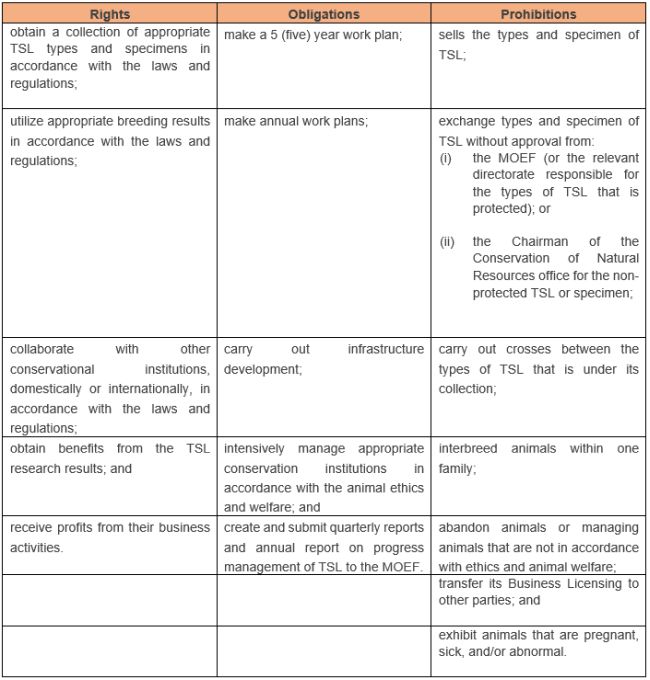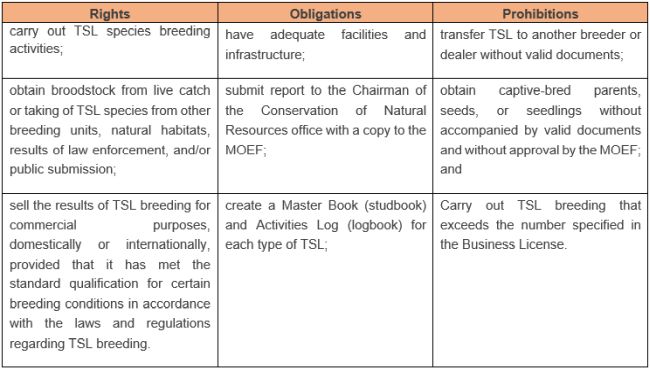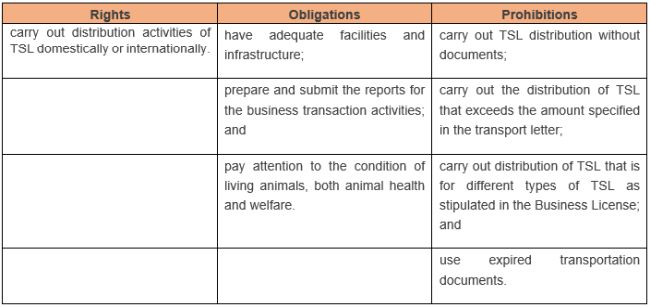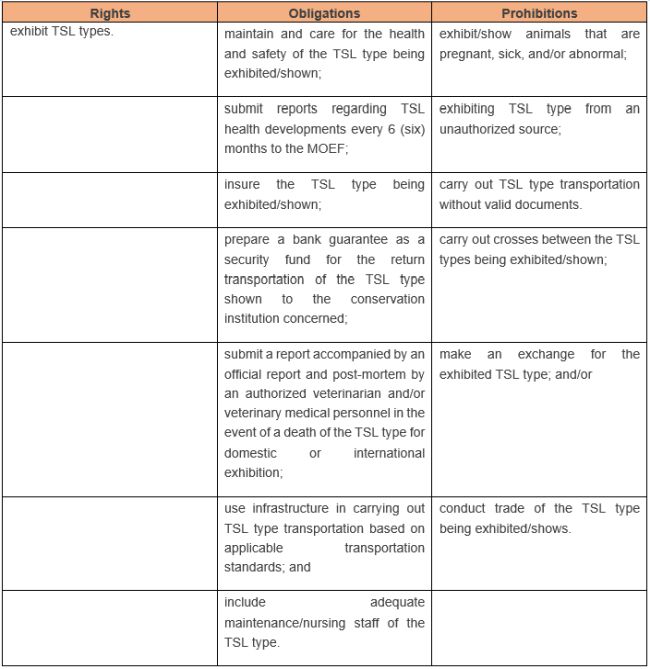On November 22, 2023, the Minister of Environment and Forestry (the "MOEF") issued Regulation No. 15 of 2023 on Business Licensing on Utilization of Wild Plants and Animals ("Regulation 15"). Regulation 15 is issued to provide sustainability, potential, support, and diversity of wild plants and animals in Indonesia. Further, Regulation 11 is issued following the determination of risk-based business licensing with regard to the utilization of wild plants and animals as stipulated under Government Regulation No. 5 of 2021 on Implementation of Risk Based Licensing ("GR 5/2021").
We set out below certain key points of Regulation 15.
- Sub-Sectors of Utilization of Wild Plants and Animals and Risk-Based Business Licensing
Under GR 5/2021 and Article 2 of Regulation 15, the utilization of wild plants and animals (tanaman dan satwa liar or "TSL") consists of 5 (five) different sub-sectors which are determined based on the analysis of their respective business risks, namely:
- Business Licensing for Conservational Institution for Public Interest;
- Business Licensing for TSL Breeding;
- Business Licensing for Domestic TSL Distribution;
- Business Licensing for International TSL Distribution; and
- Business Licensing for TSL Exhibition.
All of these sub-sectors may be conducted by obtaining a business license for each of the sub-sectors above based on its risk level.
Under Article 4 of Regulation 15, there are 2 (two) types of risks with regard to the utilization of TSL, namely (i) the medium-high risk business, and (ii) the high risk business. Regulation 15 stipulates that the sub-sectors above are all in the medium-high risk, aside from the Conservational Institution for Public Interest. For the activity of Conservational Institution for Public Interest, Regulation 15 determined it as a high-risk business.
For medium-high risk business, the business licensing shall consist of (i) a Business Identification Number (Nomor Induk Berusaha or a "NIB"), and (ii) a Standard Certificate. While for the high-risk business, the business licensing includes (i) an NIB, and (ii) the permits.
An application of the business licensing for the utilization of TLS shall be conducted by a company through the Online Single Submission System (the "OSS System") administered by the Ministry of Investment/Capital Investment Coordinating Board.
Regulation 15 also stipulates extensive provisions on the procedures, requirements, and guidelines for the applications and/or amendments or renewals of the business licensing for each of the sub-sectors above.
- Rights, Obligations, and Limitations of Sub-Sectors
Once a company obtains the business license for the relevant sub-sector for the utilization of TSL, the company has certain rights, obligations, and prohibitions with respect to its business relating to TSL.
We set out below the rights, obligations, and prohibitions for each of the sub-sectors for the utilization of TLS.
Conservational Institutions for Public Interest

TSL Breeding

TSL Distribution

TSL Exhibition

- Monitoring, Evaluations, and Sanctions
The MOEF shall monitor the implementation of the utilization of TSL activities in accordance with the standards of implementation set out under Regulation 15. In this regard, the MOEF also has the authority to conduct evaluation to assess and examine the implementation of the utilization of TSL and the fulfillment of obligations for the holder of the business license for each of the sub-sectors as set out above. This evaluation may be conducted routinely, incidentally, or at the end of the business license period for at least once a year.
Further, the MOEF may impose administrative sanctions for company that conducts the activities of the utilization of TSL based on the provisions under the Regulation 15.
Administrative sanctions may be in the forms of (i) q written warning, (ii) suspension of service from the MOEF, (iii) a monetary fine, (iv) suspension of business, and/or (v) revocation of a business license. The procedures on the imposing of each level of administrative sanctions above are stipulated further in Regulation 15.
The content of this article is intended to provide a general guide to the subject matter. Specialist advice should be sought about your specific circumstances.


